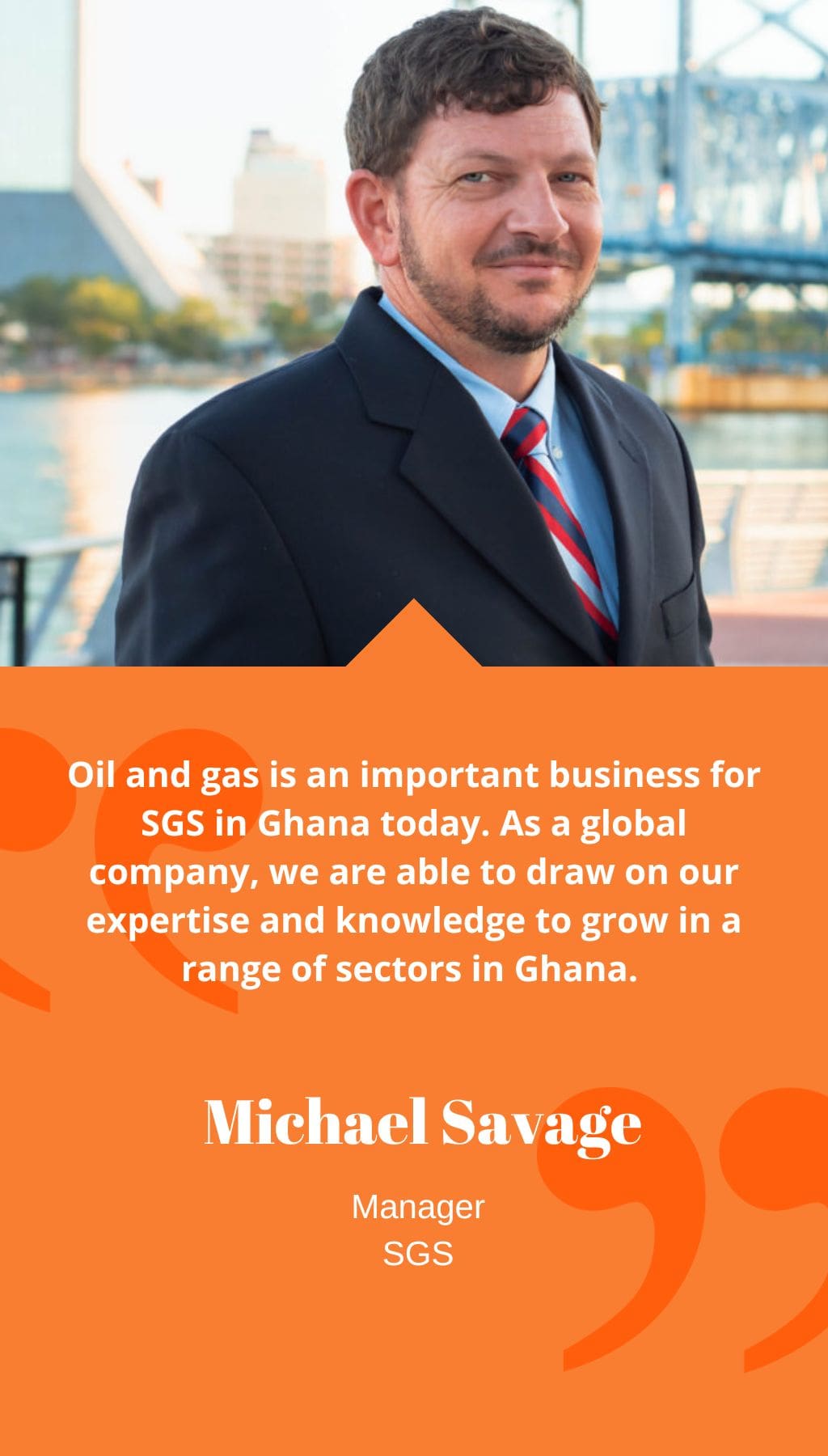
- Ghana | 22 September 2015

Could you please give us a brief introduction to SGS?
Certainly. SGS is a global company with a presence in over 140 countries and 80,000 employees worldwide. In Ghana, SGS is divided into four business lines: oil and gas, logistics, agriculture, and an environmental department with a laboratory. SGS Oil and Gas is a relatively small division within the company in Ghana, employing sixteen staff who are involved in the initial and discharge inspection of ships and tank collaboration. Additionally, the Ghanaian office deals with Bulk Road Vehicles that transport products to refineries and require collaboration to ensure that the right amount of fuel is carried. We are currently in talks with the NPA to renew the license that we had 10 years ago, which will enable us to work on the collaboration of underground plants and filling stations. Moreover, meter collaboration and tank leak protection, which is an environmental hazard, are other business areas that we are interested in working in. Originally we had hoped to open an oil analysis laboratory by Q4 2014 and are currently in talks with our Head Office in Geneva to obtain final approval by Q4 2015. The laboratory instruments measure pressure and temperature and require collaboration for accuracy. A cycle has been set up for the re-collaboration of equipment.
How important is the oil and gas industry to SGS in Ghana?
Oil and gas is an important business for SGS in Ghana today. As a global company, we are able to draw on our expertise and knowledge to grow in a range of sectors in Ghana. We have been involved in a fuel program for Shell where additives are added to regular petrol to enhance the performance of the fuel in the vehicle, resulting in better mileage, decreased emissions, and more environmentally friendly fuel. Currently, SGS’s biggest business is the collaborations and inspection of vessels that bring fuel into the country.
Is SGS involved in any training programs in Ghana?
Yes, SGS is focused on setting up a training program where experienced expatriates from global offices will embark on a 3-6 month training period to share and transfer knowledge to local employees who have the capabilities and qualifications to work in the industry.
Can you provide us with an example of an innovative technological solution that has been applied successfully in Ghana?
Certainly. Oil exploration uses PVT Analysis equipment that is not easily available, although SGS is one of the only companies worldwide that has ownership of the Pressure-Volume-Temperature (PVT) technology. Oil and gas companies that do not have the technology are required to send PVT samples to Orlando or Belgium for analysis, which is inefficient in terms of both time and money. However, if technology is available onsite, the process is extremely efficient. Hess is a company that we will be marketing the PVT technology to.
What is your strategy to expand SGS’s market share in Ghana?
Our strategy is to employ the best people. SGS is interested in a whole range of services, instead of focusing on one specific area. This will enable SGS to offer a whole spectrum of integrated services to our clients. We are using our resources from Europe and America to expand our market share.
Where do you expect to see SGS Ghana in five years time?
We expect SGS to be a diverse company that will employ up to three hundred people. We will be able to offer oil and gas companies a complete package of services.














